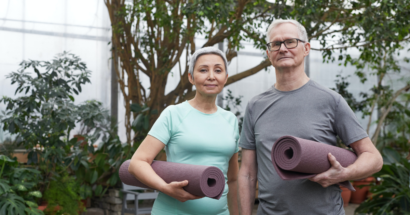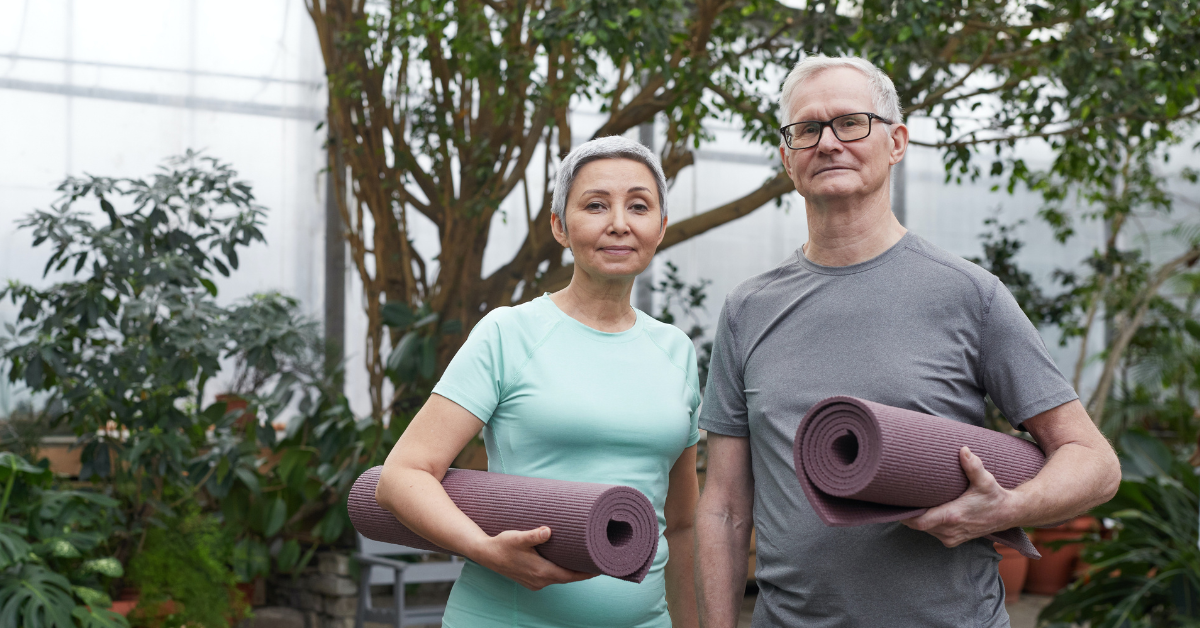What is Arthritis?
Arthritis is the term for a group of conditions that damage joints, causing pain, stiffness, and reduced mobility. It affects 34% of the people in Calgary. Arthritis does not discriminate, it can affect children, adults, athletes, and the elderly. Severe cases of arthritis can result in chronic pain, causing patients to have difficulty performing the simplest of activities.
There are many options for arthritic pain treatment in Calgary. In this article, we will be discussing in detail the types, symptoms, treatments, and risk factors for arthritis. Feel free to skip over this article, if you are just looking to learn about our physiotherapy treatments for arthritis Click Here

Rheumatoid Arthritis
Arthritis is a common condition that affects people of all ages. The most common type of arthritis is called rheumatoid arthritis (RA). RA is an autoimmune disorder in which the body’s immune system attacks its own tissues. This can cause inflammation in joints as well as other parts of the body. In the joints, this inflammation can damage the synovium – a soft tissue that produces fluid that nourishes cartilage and lubricates joints. Over time, this can lead to the destruction of both bone and cartilage inside the joint.
Currently, scientists are still working to figure out the exact reason that causes our immune system to attack. However, they have identified specific genetic markers that can increase your risk of developing RA, by almost 5x.
Osteoarthritis
Another common type of Arthritis is called Osteoarthritis (OA). OA is a condition that affects the joints, often caused by the natural breakdown of cartilage tissue from daily wear and tear. Cartilage is a firm but flexible connective tissue in your joints that helps protect them from absorbing too much pressure or shock when you move. When there is a reduction in the normal amount of cartilage tissue, arthritis can develop.
Genetic factors also play a role. If you have a family history of OA, there is a higher likelihood that you will develop OA at some point during your life.

What are the symptoms of arthritis?
The primary symptom of arthritis is joint pain or stiffness that is brought on or increased during physical activity. Arthritis is unique in the sense that flare ups can be associated with changes in weather and mood. Other common symptoms of arthritis include stiffness and swelling which can become easily identified by a visual inspection. Sometimes patients may also feel a grinding sensation in their joints, this is less common but it is attributed to arthritis wearing down the cartilage between the bones in the affected joints.
4 of the most common symptoms of arthritis:
- Joint pain
- Joint stiffness
- Joint deformity
- Joint swelling
Additional symptoms of Osteoarthritis:
- Reduced range of motion (ROM)
- Clicking and popping of the joints
- Weaker muscles near joints
- Feels like there is grinding in the knees
- Instability
Additional symptoms of Rheumatoid arthritis:
- morning stiffness that gradually dissipates
- fatigue
- low-grade fever
- Increased inflammation
- Lower red blood cell count

What causes Arthritis?
There are many different types of arthritis, the two most common of which are osteoarthritis and rheumatoid arthritis. Osteoarthritis is caused by wear and tear on the joints, which causes the surrounding cartilage to deteriorate. Rheumatoid arthritis, on the other hand, is an autoimmune disorder. In this case, the body’s immune system attacks the body’s synovium, which acts as a lubricate for the joints. When the synovium wears down, the bone and cartilage both become damaged.
Genetics can play a large role in the underlying cause of arthritis, however, here is a list of the 5 most common causes of arthritis:
- Wear and tear of the cartilage
- Autoimmune disorders
- Old age
- Obesity
- Existing joint damage
How is arthritis diagnosed?
If you are experiencing any of the symptoms associated with arthritis, it is important to see your primary care physician as soon as possible. They will perform a physical exam to check for any signs of arthritis and will be able to refer you to a specialist if needed. Early diagnosis and treatment are key to managing arthritis effectively.
Arthritis is a condition that can cause inflammation in the joints. Blood tests and analyzing joint fluids can help your doctor determine what kind of arthritis you have. These tests look for specific antibodies that are with certain types of arthritis. Once your doctor knows what type of arthritis you have, they can prescribe the appropriate treatment.
Doctors will often request X-rays, MRIs, and CT scans to get a detailed image of your cartilage and bones. This can help rule out other factors that might be presenting similar symptoms to arthritis.
Arthritis Treatment Options
There are many treatment options for arthritis, depending on the type and severity of the condition. Some common treatments include over-the-counter or prescription medications, physiotherapy, and surgery.

Physiotherapy for Arthritis Pain
Our team of physiotherapists has extensive experience treating patients suffering from arthritis. With over 25 years of working alongside rheumatologists and other healthcare professionals, our physiotherapists are proud to be the primary referral for the majority of rheumatologists in Calgary. This experience has given our team of physiotherapists, specializing in arthritis, a deep understanding of assessing how arthritis affects joint movement, muscle strength, and physical function.
We utilize the latest evidence-based research to create specific exercises targeted at improving joint mobility, increasing muscle strength, and improving function. Our clinic has a variety of different modalities, including cold/hot applications, electrical stimulation, IMS, ultrasound, laser therapy, and IFC, which can be used to reduce pain and inflammation.
If you are looking for results that last, book an appointment with one of our physiotherapists. Schedule an appointment with us to receive personalized assistance in managing your arthritis.
What lifestyle changes can help people with arthritis?
People with arthritis can benefit from making lifestyle changes to help them manage their condition. Some suggestions include:
- Exercising regularly. Exercise can help keep joints flexible and strong, which can lessen the symptoms of arthritis. Try to engage in a mix of aerobic exercise and strength training.
- Maintaining a healthy weight. People who are overweight or obese are more likely to develop arthritis. Losing weight can help reduce inflammation and pain.
- Eating a healthy diet. A diet rich in fruits, vegetables, and whole grains can help reduce inflammation and pain associated with arthritis. It’s also important to avoid foods that trigger inflammation, such as red meat and processed foods.
- Limiting alcohol intake. Drinking alcohol can worsen joint pain and swelling.
- Quitting smoking. Smoking cigarettes increases the risk of developing rheumatoid arthritis and can make the condition worse if you already have it.

Foods to avoid for arthritis?
There are a few specific foods that people with arthritis should try to avoid, as they can aggravate the condition. These foods include:
- Processed foods. Foods that are high in sodium and preservatives can aggravate inflammation and pain.
- Red meat. Red meat is high in saturated fat, which can aggravate inflammation.
- Dairy products. Dairy products are known to trigger inflammation in some people with arthritis.

Risk factors
The cause of arthritis is not fully understood, but there are several risk factors that may increase your chances of developing the condition. These include:
- Age: The risk of arthritis increases as you get older.
- Gender: Women are more likely to develop arthritis than men.
- Family history: If you have a family history of arthritis, you are more likely to develop the condition.
- Weight: Being overweight or obese increases your risk of developing arthritis.
- Occupation: Jobs that involve repetitive motions or exposure to heavy machinery can increase your risk of arthritis.
Making life changes:
Arthritis can cause changes in your life, which can be frustrating, scary, or challenging. However, there are ways to manage your life and cope with these changes. Some ideas include buying a more comfortable chair, going to physiotherapy, changing your work routine, adjusting your social life, choosing different sports to enjoy, or modifying the way you manage your home. You may need to keep making changes as the needs arise.
Change is a natural part of life, and everyone experiences it in different ways. If you have arthritis, dealing with change can be especially challenging. However, by staying flexible and adapting as needed, you can manage arthritis and still live a full life.
What will my first physiotherapy visit for arthritis look like?
Your first visit to Brentwood Physio involves a thorough arthritis examination and assessment. Our clinic specializes in the treatment of rheumatoid, juvenile, and osteoarthritis arthritis and will look at how your condition is affecting you in terms of pain and stiffness. A detailed objective evaluation assessing joint range of motion and muscle strength will be performed. We utilize a functional activity assessment and various other objective measures to create a personalized treatment plan specific to the management of arthritis.
Having a diagnosis of arthritis does not mean you need to be accustomed to living with chronic pain and stiffness. Physiotherapy is a very effective way for you to take back control, increase your joint mobility and reduce your pain. We will help you get back to normal, whatever your normal is.
We hope you have found this information helpful and informative. Feel free to reach out to us if you have any inquiries or require further details.









